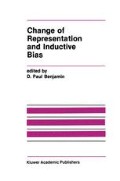Abstract
Algorithm design systems are sensitive to the formulation of a problem specification and the domain theory in which they reason. In this paper we argue that the performance of an algorithm design system can be enhanced by first reformulating a problem specification into an abstract data type by incorporating relevant problem properties. We will describe the semantics of a class of valid problem reformulations and relate them to the semantics of the implementation relation between models. Abstraction reformulations are the inverse of implementation reformulations. We will describe STRATA, an automatic problem reformulation system, which generates abstract data types from a problem specification and a domain theory specified in equational logic. STRATA reasons from the first principles of universal algebra.
Access this chapter
Tax calculation will be finalised at checkout
Purchases are for personal use only
Preview
Unable to display preview. Download preview PDF.
References
Alan Bundy. Automatic Guidance of Program Synthesis Proofs. In Proceedings ofIJCAI-89 Workshop on Automating Software Design. Detroit, MI. August 1989.
H.B. Enderton. A Mathematical Introduction to Logic. Academic Press.
J.A. Goguen and R.M. Burstall. Institutions: Abstract Model Theory for Computer Science. Stanford University report no. CSLI-85–30. August, 1985.
J.A. Goguen, J.W. Thatcher, and E. Wagner. An Initial Algebra Approach to the Specification, Correctness, and Implementation of Abstract Data Types. Current Trends in Programming Methodology, IV, edited by R. Yeh, Prentice Hall.
F. van Harmelen and A. Bundy. Explanation-Based Generalization = Partial Evaluation. Artificial Intelligence 36:401–412, 1988
Donald E. Knuth and Peter B. Bendix. Simple word problems in universal algebras. In John Leech, editor, Computational Problems in Abstract Algebra, pages 263–298, Pergamon Press, 1970.
J. Komorowski. A Specification of An Abstract Prolog Machine and Its Application to Partial Evaluation. Ph.D. Thesis, Linkoping Studies in Science and Technology Dissertations, No. 69, Sweden, 1981
R. E. Korf. Toward a Model of Representation Changes. Artificial Intelligence 14(1):41–78, 1980.
Douglas Leant. AM: An Automated Mathematician System. PhD Thesis. Stanford University
Michael R. Lowry. The Logic of Problem Reformulation. In the Proceedings of the Workshop on Knowledge Compilation. Otter Crest, OR. September 1986. Also available as Kestrel technical report KES.U.86.9
Michael R. Lowry. The Abstraction/Implementation Model of Problem Reformulation. IJCAI-87
Michael R. Lowry. Invariant Logic: A Calculus for Problem Reformulation. In the Proceedings of AAAI-88. St. Paul, Minnesota. August, 1988.
Michael R. Lowry. Algorithm Synthesis through Problem Reformulation. PhD Thesis, Stanford University.
D. Musser. On Proving Inductive Properties of Abstract Data Types. In 7th Symposium on Principles of Programming Languages. ACM, 1980
Douglas R. Smith. Top Down Synthesis of Divide-and-Conquer Algorithms. AI Journal 27 1985.
Douglas R. Smith. KIDS-A Knowledge-Based Software Development System. In Proceedings of the Workshop on Automating Software Design, AAAI-88. St. Paul, Minnesota, August 1988.
David M. Steier. Automating Algorithm Design within a General Architecture for Intelligence. PhD Thesis. CMU 1989.
J. Tenenberg. Abstraction in Planning. PhD Dissertation, University of Rochester. 1988
R. Waters. The Programmer’s Apprentice: A session with KBEmacs. IEEE Transactions on Software Engineering, SE-11: 1296–1320. November, 1985
Author information
Authors and Affiliations
Editor information
Editors and Affiliations
Rights and permissions
Copyright information
© 1990 Kluwer Academic Publishers
About this chapter
Cite this chapter
Lowry, M.R. (1990). STRATA: Problem Reformulation and Abstract Data Types. In: Benjamin, D.P. (eds) Change of Representation and Inductive Bias. The Kluwer International Series in Engineering and Computer Science, vol 87. Springer, Boston, MA. https://doi.org/10.1007/978-1-4613-1523-0_3
Download citation
DOI: https://doi.org/10.1007/978-1-4613-1523-0_3
Publisher Name: Springer, Boston, MA
Print ISBN: 978-1-4612-8817-6
Online ISBN: 978-1-4613-1523-0
eBook Packages: Springer Book Archive

